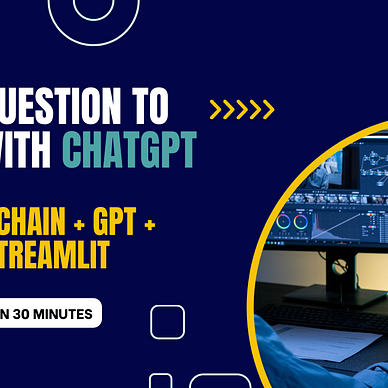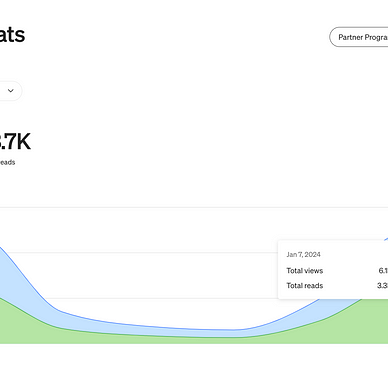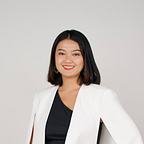How Becoming a Programmer Helps Me Learn How to Learn
This is not a tech article — it is about the journey of learning, short and sweet.
I have been coding since I was 10. It started as a hobby, with Lego Mindstorm, blogging, Arduino, and just being on the Internet forum.
I never thought I would be a programmer when I was learning how to code. I wanted to be cool on the internet. When I used Friendster, a social media platform that allowed you to message your friends and have a cool profile, I started learning how to style my page with basic HTML & CSS.
The cooler your MySpace & Friendster profile was — the cooler you were.
Today, these styles might break all your UI/UX guides. We didn’t have the ‘less is more’ concept back then. Take a look at this Friendster Layout Template Blog.
Haha! Look at this old Windows XP start bar!
Very Nostalgic…
So, how did I learn to code back then?
The majority of learning takes place during formal education. Typically, you spend around 12 years in school, learning the basics of math, science and history. Unfortunately, topics like coding were not usually introduced in schools.
Currently, I am not enrolled in any formal education system, as I am employed. If I want to acquire new skills, I have two options: either I can join a learning program, or I can learn by myself.
Learning by myself is what I did back in the day, and it still works for me today. To improve my Friendster and Myspace profiles, I went to the Yahoo Search Engine and browsed for things! Sorry, Larry, Yahoo was more popular back then.
The Learning Curve: Search Engine, YouTube, and Blogspot as My Teachers
Back then, learning resources were scattered and needed to be more organized. We did not have Towards Data Science for DS. We did not have geeks4geeks or W3School. I remember spending hours on YouTube, watching tutorials, and piecing together information from various Blogspot articles. It was like assembling a puzzle without knowing what the picture would look like.
What I Learned About Learning
This unstructured approach taught me a crucial lesson: learning is not just about acquiring information; it’s about making connections between different pieces of knowledge.
As a programmer, you don’t just learn to code; you learn to think in algorithms, to break down problems into smaller, manageable parts. This skill, I realized, is applicable far beyond the realm of coding.
On Learning from Mistakes
I have been teaching in the coding boot camp — Le Wagon, on a 9-hour learning format daily. I started giving a lecture for 1.5 hours, and the students had 6.5 hours to solve coding challenges, which were wrapped up with a 1-hour live coding session. When I learned this, I asked why we had just 1.5 hours of a lecture when we had 9 hours of session time.
The answer is simple: to be a good coder, you learn by doing, by making a mistake, by having 100 errors, and then solving it. The 2.5 hours of lecture is enough to give them a concept, and the 6.5 hours are essential to make them understand how to implement it.
On a side note, this boot camp is a 10-week program for those from different backgrounds. So, they got plenty of lecture time overall.
This allows the learners to have problem-solving, critical thinking, and continuous learning skills.
In a real-life application, to acquire various skills — you’ve gotta learn by making mistakes.
I took my paragliding pilot certification last year.
Yes! This girl is a paraglider 😎
I took numerous faceplants and falls during ground handling until I could be stable enough to take off from the cliff. And man! It’s worth it! If I had not made the mistakes, I would not have known right from wrong for my flying and taking-off techniques.
The view of the Bali Sea is amazing from above. Although I can swim, I’m cautious about the potential risks. Avoiding accidents while paragliding is crucial for me — safety always comes first.
On Reading More
Regarding technology, something new is always released every other week — or days. ChatGPT was unheard of a few years ago, but it has become big this past year.
The challenge is staying relevant.
In programming, it’s also the same; I have to keep up by reading more to know the newest stable technology I can implement.
And not only that…
A programmer is a writer; we write code.
We spent more time reading documentation and interacting in the community to solve things if we encountered a bug.
Annie Proulx, an American writer and a Pulitzer Prize award winner, once said:
Writing comes from reading, and reading is the finest teacher of how to write.
To be a good coder, we must read a lot from a good coding excerpt on the GitHub repository.
To acquire any skills you want, you always need to absorb information, whether watching a short-form on TikTok or Shorts, watching a YouTube video, listening to a podcast, or reading an article.
On Asking an Expert and Networking with a Community
As a coder, I was reading a code solution on StackOverflow and I was impressed by the number of people who were willing to share their thoughts freely on the forum. The community has played a big role in my learning journey, and I am used to seeking the opinions of experts within the community.
On my last trip to Vietnam, after I got my paragliding license, I was looking for a chance to paraglide in a suburban area. This city is 2 hours away from Hanoi. I knew the paragliding site was high — 700 meters altitude. Meanwhile, my record for flying, the highest altitude I have been at that time, was 180 meters above the sea.
So, I joined a paragliding group and asked if there were any paragliders in town, asking if I could fly and have an instructor to guide me at this 700m altitude. And Voila... I got an answer, and I am glad. I now know how to fly in the mountains... 720 meters high!
I would not have flown this high if I had not joined and asked this community.
My Advice to Aspiring Learners
My advice to those just starting or acquiring new skills is simple: be curious, be open, don’t be afraid to ask questions, and never stop learning. The tools and skillset might change, but the core skills of problem-solving, critical thinking, and continuous learning will always be valuable.
Programming didn’t just teach me how to write code; it taught me how to learn. And that’s an invaluable skill, regardless of your journey.
Also, do you guys know how to retrieve a 15-year-old Friendster Account? Let’s Connect
If you like my stories, please read my article here.


I also shared my tech internet income journey on this Medium Reading List.


Let’s Connect
- 🌐 Follow me on LinkedIn and Medium
- 📬 Subscribe for free to my Medium newsletter for email updates!
- 🚀 Please clap, save into your reading list, share, and comment on this article if you found this useful!
- 👏 Oh Hey! you can clap more than one (50 max)in 1 article — that will help me get a cup of coffee to write my upcoming articles with ;)
- ☕ or just buy me a real coffee ❤ — Yes I love coffee.
